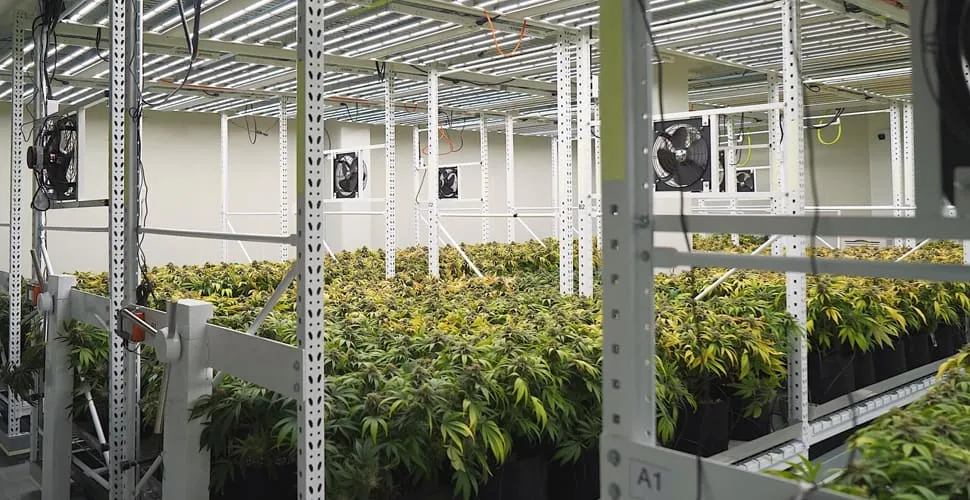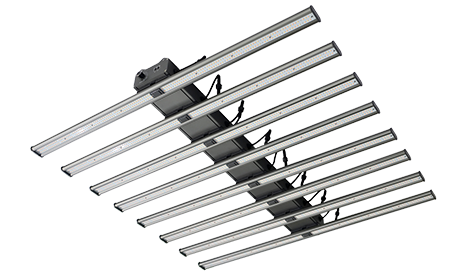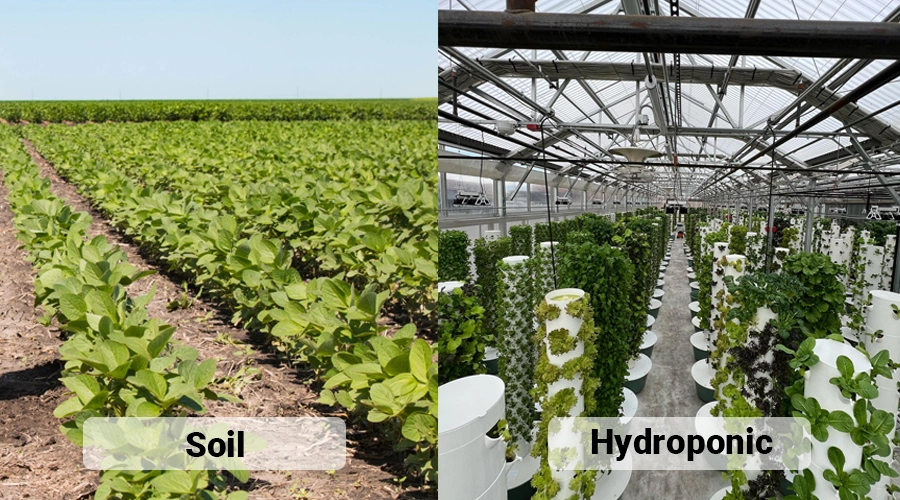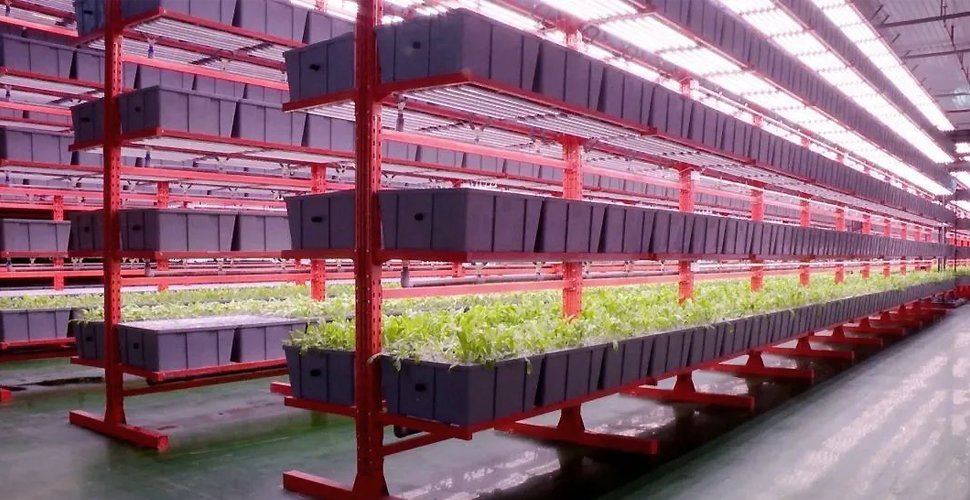Embarking on the world of indoor gardening naturally directs your thoughts to the realm of plant lights.
But have you ever truly grasped the inner workings that make these seemingly ordinary lights so extraordinary?
If the thought of unraveling the enigma behind plant lights has crossed your mind, please step into the illuminating realm of this article as we delve into the captivating science that how LED grow lights work.
What Role Does LED Grow Light Play?
Life thrives and grows due to the sun, which is the main source of energy for our planet. When deciding to grow plants indoors, the first consideration is replicating natural sunlight.
Lighting is one of the most crucial factors for any indoor planting to flourish.
Compared with HPS lamps, LED grow lights have a higher initial investment. It is related to the fact that LED plant lights use a full spectrum. LED plant lights are more attractive and play an important role in promoting crop growth and improving agricultural production efficiency in the long run.
Because the quality and attributes of the LED plant lights are excellent, they have become a very popular light fixture used by greenhouse farmers and cannabis growers.
Commercial LED grow light is also highly regarded for their long service life, the low waste of heat generated, and their full-spectrum capacity as previously described.
Let’s take a look at what indoor growers have to say about their plant lights. You can click here to see the benefits of LED plant lights for growing marijuana on a large scale.
How Does A Grow Light Work?
Light-emitting diodes (LEDs) are semiconductor devices that emit light when an electric current passes through them. They work based on a process called electroluminescence. Here’s a breakdown of the process:
1. Semiconductor Material
LEDs are constructed using semiconductor materials, often compounds like gallium nitride (GaN) or indium gallium nitride (InGaN). These materials have properties that allow them to emit light when electrons move within them.
2. Electron Movement
When a voltage is applied across the semiconductor material, electrons are energized and move from a lower energy level (valence band) to a higher energy level (conduction band), creating holes in the valence band.
3. Recombination
As the energized electrons move to the conduction band, they can recombine with the holes left in the valence band. This recombination of electrons and holes releases energy in the form of photons (light particles).
4. Emission of Light
The wavelength and color of light emitted by LEDs are determined by the energy level difference between the conduction and valence bands. Manufacturers use different semiconductor materials and compositions to produce specific colors of light.
5. Photon Production
The released photons create the visible light that we perceive. The color of the light depends on the energy gap of the semiconductor material.
6. Color Mixing
To achieve different colors of light, manufacturers often use techniques such as color mixing or phosphor coatings that convert some of the emitted light to a different color.
7. Efficiency
LEDs are highly efficient in converting electrical energy into light. Unlike traditional incandescent bulbs that emit light as a result of heating a filament, LEDs generate minimal heat during this process.
Do Grow Lights Actually Work?
People might wonder: regular white light bulbs emit various colors of light and can also be used for plant supplementation, so why the need for plant lights?
This is because LED plant lights, designed specifically for plants, emit the colors of light that are most essential for photosynthesis and overall growth.
Essentially, LED plant lights provide a tailored spectrum by mimicking the specific wavelengths of light plants receive from sunlight. But why are plant lights considered adequate? We can briefly understand this from the following aspects.
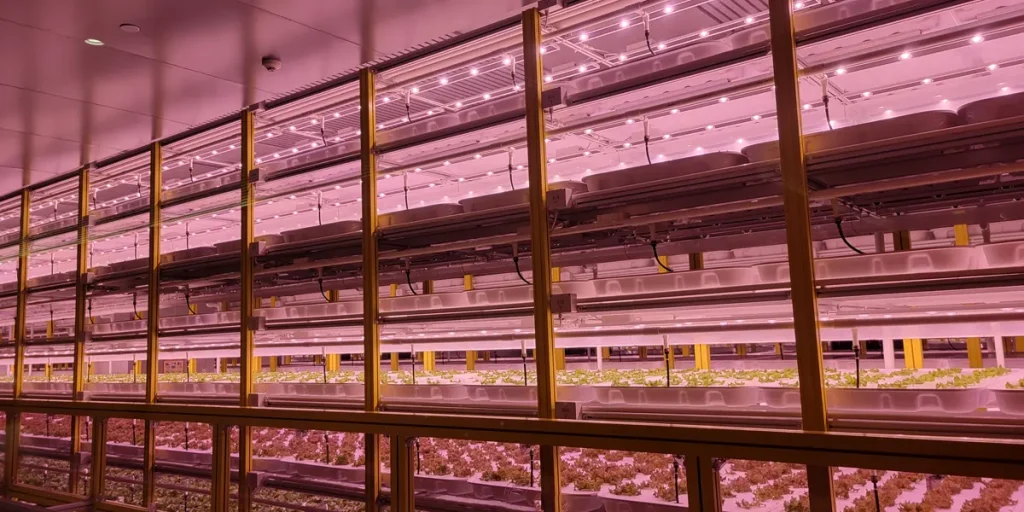
Scientific Basis: Plants require different colors and intensities of light at various growth stages. For instance, blue light is essential for vegetative growth, red light aids in flowering and fruiting, and UV light is beneficial for enhancing the aroma of cannabis.
Greater light spread and uniformity: Higher space-generated photons allow for better uniformity on plants.
Energy Efficiency and Cost Savings: LED plant grow lights boast higher energy efficiency, converting more energy into usable light. This, in turn, reduces growers’ electricity expenses and minimizes their environmental footprint.
Customizability and Control: AUXGROW offers customizable LED plant light spectra and has developed adjustable-spectrum plant lights. This allows seasoned growers to fine-tune light composition and intensity based on specific plant species, growth stages, and environmental conditions.
Reduced Maintenance: While the upfront cost of LED plant lights might be higher, their extended lifespan reduces the need for frequent replacements, resulting in cost savings over time.
Heat Management: LEDs generate less heat, thereby reducing the risk of heat stress and enabling you to position the fixtures closer to the plants without causing any damage.
Wide Variety of Options: LEDs are ideal for a variety of lighting applications. Because they can come in a variety of sizes, plant lights can be sized to meet the home growing, greenhouse growing, and plant factories.
Friendlier to the Environment: Many forms of lighting, such as HID, contain harmful substances, such as mercury, while LED lights do not.
Contact AUXGROW Today
If you’re eager to embrace the power of LED plant lights, look no further than AUXGROW. We specialize in providing cutting-edge LED plant lights that cater to your plant’s unique needs.
Whether you’re a seasoned gardener or just starting, our LED plant lights are your partners in achieving vibrant and thriving plants.
If you’re looking to learn about LED grow lights, continue reading our blog. If you’re ready to purchase, contact us now to benefit your plants!
Jayes
As a Digital Marketing Manager at AUXGROW, Jayes combines a passion for hydroponic systems and expertise in LED grow lights. With hands-on experience and a deep understanding, Jayes guides you through the world of sustainable cultivation.

